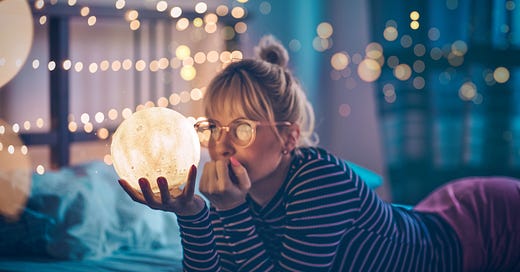Welcome to DSTLLD, a new newsletter that was created to help you take back the most valuable resource you have. Your time.
No one has time to read 2 books a month, listen to 10 hours worth of podcasts in a week and watch 7 YouTube videos on a particular topic to improve their lives or learn about a subject.
My aim is to help you become a better person in 500 words or less, which means you should be able to read each and every post in 3.8 minutes.
Put that bathroom break at work to better use than watching 13 TikTok videos.
I love to learn and share my new knowledge with others.
So…
Save yourself several hours and use my knowledge instead!
As promised…
13 Tips To Improve Your Sleep, Tonight:
View direct sunlight 30-60 minutes after waking, this will peak cortisol levels early. Not just the stress hormone, increased cortisol leads to an enhanced immune system, better focus, increased metabolism and will trigger processes to wind you down by the end of the day.
Delay caffeine intake until 90-120 minutes after waking. Caffeine works by blocking adenosine receptors in the body (adenosine buildup throughout the day makes us sleepy). Blocking these receptors immediately upon waking doesn’t give your body time to flush remaining adenosine from the night before, this will exacerbate your typical mid-afternoon crash.
Eliminate caffeine intake after 2pm. The half-life of caffeine on average is 5 hours, meaning a 150mg Venti at 2pm will leave you with 37.5mg left in your body at midnight, not including your morning coffee.
Your core body temperature needs to drop 2-3 degrees F in order to trigger sleep. Make sure your bedroom stays cool, ideally between 60-68 F. Insomniacs are often shown to have a higher core body temperature.
Exercise is best done in the morning to provide you with a 12 hour mood boost but should be avoided within 4 hours of sleep to give your core body temperature time to fall.
A SHORT hot shower, bath or sauna at night can help decrease core body temperature as stepping out of these scenarios into a colder room will trigger the drop.
Nap. But not too close to bedtime. Avoid napping within 3 hours of bedtime, keep naps shorter than 20 minutes or around 90 minutes.
Try NSDR or Yoga Nidra, if you’re not a napper — I’m not — NSDR, Yoga Nidra or Deep Meditation for as little as 10 minutes has been shown to provide similar benefits to naps.
Watch the sunset. Viewing late afternoon/evening light can help negate some of the harmful effects of artificial light late overnight.
Limit bright artificial light after sunset. Especially 60-90 minutes before bed, artificial light of almost any intensity occurring inside a modern home will kill natural melatonin production in the body. When possible use dim lights, table lamps and avoid screens. Note: overhead lights mimic sunlight due to the location of specific neurons in our eyes.
Avoid eating large meals before bed to prevent your digestive system from elevating your core body temperature as it metabolizes food. For best results avoid large meals within 3 hours of sleeping.
Keep your room as dark as possible. Your skin is photosensitive just like your eyes, keep it dark. Try blackout curtains, turn your bright alarm clock around and avoid nightlights if safe to do so.
Alcohol and THC affect sleep quality. Despite some claims that alcohol and THC help individuals fall asleep, the quality of sleep and level of restorative sleep attained after using these substances can be greatly diminished.



